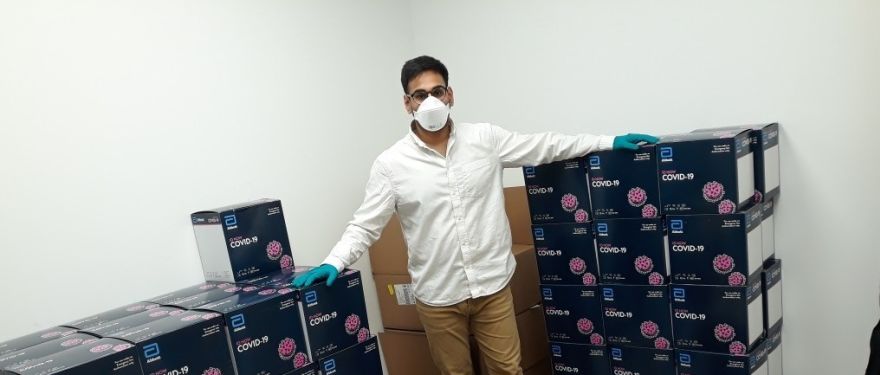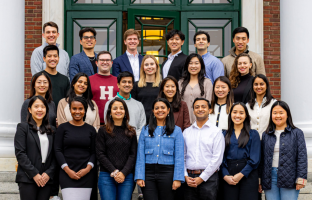Two weeks into his Leadership Fellows position with the Detroit’s Office of the Mayor, Nikhil Patel (MBA 2019) was summoned by the Mayor for a car ride. Among Patel’s mandates – which included economic development, housing, and transportation – was gun violence. “We drove to the East Side,” Patel says, “and parked underneath a tree to meet with gang members. We asked them, ‘What could the city do over the next three, six, and twelve months to improve lives and reduce gun violence?’”
The point, Patel understood, was to build trust “and bring a human, bottom-up approach” to Detroit’s more urgent challenges.
In March, community trust would prove critical. While taking a deep dive into the potential for tax policy to incentivize housing development, “COVID-19 really hit,” Patel says. Virtually overnight, Patel’s housing priorities changed from ten-year horizons to the days and weeks immediately ahead. “I had to figure out how to set up isolation and quarantine sites for two to three thousand homeless people, sheltered and unsheltered,” he says.
“I made epidemiological models to estimate the number of rooms we needed, then helped ensure the necessary medical services were in place,” says Patel. At the same time, he crafted models “for addressing mental health issues and comorbidities” while negotiating services and soliciting potential funders for money. Finally, Patel coordinated Detroit’s Rapid Abbott COVID-19 Testing site, starting with first responders then moving to bus drivers, nursing homes, and homeless shelters. “We’re running twelve-to-sixteen hours a day, seven days a week.”
Lessons in Leadership
For Patel, both the intensity and the complexity of the pandemic response offer important lessons in leadership. “You can’t overestimate how important it is to communicate early and often,” he says. “If you don’t communicate early, you lose the chance to build trust. And if you lose that trust, your outcomes will be compromised. Your people will work in silos, and gaps will appear in your work processes.”
“When things are good,” Patel observes, “ineffective leadership styles are less exposed. But in bad times, weaknesses reveal themselves. Leadership cannot be absent; people have to know who is ultimately making the decisions.” For example, Patel feels obligated to respond to work emails – all of them – within hours. “Otherwise, people can’t get their work done.”
Effective communication must be accompanied with efficiencies in structure. “We have to operate more like a private company in which different departments have their own authority to act without running every decision up the chain of command,” says Patel. “Things need to move fast.”
Finally, the “soft” skills of leadership become the hard substance of excellent crisis response. “As a leader, you have to be genuinely caring about people’s needs,” Patel stresses. “If they don’t believe it, it’s much harder to get people to rally behind you.”
The way one leads in a crisis, Patel believes, has enduring consequences. “In good times, it feels okay to take a risk on who you get behind as a leader. But when things go wrong, it’s important to think about who you trust. The impact of our leadership, for good or ill, will remain after the crisis, affecting our teams’ confidence, the public’s trust, and the well-being of our society.”






.png&w=80&h=80)
